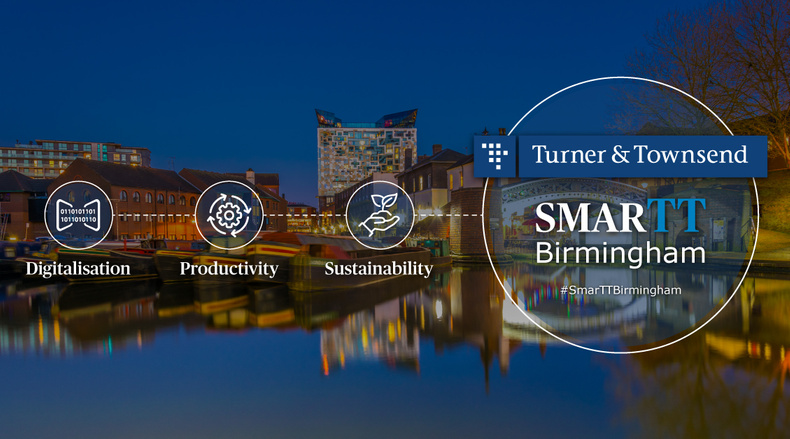Why Birmingham's 15-minute city must be smart too

Birmingham City Council's Our Future City Plan has ambition in spades. At the heart of this vision lies the concept of a green and connected 15-minute city, which puts essential services such as schools, shops, green space, and public transport all within a short radius to create thriving communities.
The idea is already gaining traction in Europe as Milan and Paris have started taking their own steps to become cities of proximities. The concept has also been adopted as one of the recommended actions for cities in the C40 Mayors Agenda for a Green and Just Recovery.
On the surface it might seems contrary to the tech-led visions that are often associated with the smart city. The connected, Internet of Things (IoT)-enabled, data-centric city suggests a dependence on digital remote management rather than neighbourhood-led change.
But I think a 15-minute city in urban centres including Birmingham will be underpinned by advanced smart city technology too.
A 2018 study by McKinsey estimates that cities that use technology improve quality of life indicators by between 10% to 30%, and help them make moderate or significant progress towards 70% of the UN's Sustainable Development Goals.
Technology in Birmingham is already helping to deliver better environmental and social outcomes.
The forthcoming launch of Birmingham's Clean Air Zone (CAZ), which Turner & Townsend has played a contributory role as programme manager, is significant and a great example that has been in part made possible by smart technology.
In the future, there is great potential to use smart technology on a neighbourhood level too by using connected IoT devices to provide warnings on local pollution hotspots and support community-led changes in traffic and parking policy. This is important for a green neighbourhood within a 15-minute city.
Birmingham's involvement in the Government's 5G Testbeds and Trials Programme is also important for the 15-minute city aspiration.
WM5G's Road Sensor Network trial will install sensor cameras and IOT sensors across the key road networks in the city and wider region. These will form a network of monitoring capable of collecting, processing and sharing real-time traffic information, emissions and weather data.
Access to this rich data source would improve the ability to manage traffic locally. WM5G estimates that this could lead to a 5% reduction in journey delays, as well as benefits from fuel savings, reduced accidents and lower emissions.
Smart lighting could support a 15-minute Birmingham too. One of the advantages of smart street lighting is the flexibility of local lighting conditions. Lighting levels can be easily adjusted to meet local needs around public safety, entertainment, road safety, or environmental issues.
These tech-led solutions can have a significant impact in isolation, but by delivering them in an integrated way and as part of an ambitious, wider programme that impact will be transformative for all our communities. Get this right, and the sum of all these connected, thriving neighbourhoods will be the Birmingham of the future.
